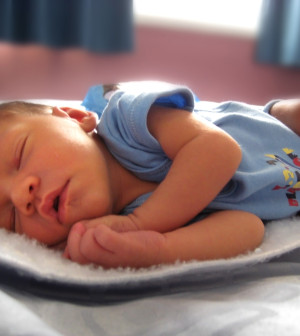- The Best Time of Day to Drink Bone Broth to Maximize Health Benefits
- 8 Ways to Increase Dopamine Naturally
- 7 Best Breads for Maintaining Stable Blood Sugar
- Gelatin vs. Collagen: Which is Best for Skin, Nails, and Joints?
- The Long-Term Effects of Daily Turmeric Supplements on Liver Health
- Could Your Grocery Store Meat Be Causing Recurring UTIs?
- Are You Making This Expensive Thermostat Error This Winter?
- Recognizing the Signs of Hypothyroidism
- 10 Strategies to Overcome Insomnia
- Could Artificial Sweeteners Be Aging the Brain Faster?
Older Mothers at Higher Risk of Child With Autism, Study Suggests


The risk of having a child with autism rises rapidly after women pass age 30, a large new study suggests.
Researchers analyzed data from more than 417,000 children born in Sweden between 1984 and 2003. They found that women who gave birth before they were 30 years old had no age-related increased chance of having a child with an autism spectrum disorder.
However, the risk of autism among children born to mothers 30 and older increased quickly with the mother’s age. The researchers also found that a man’s likelihood of fathering a child with autism increases steadily with age throughout his life.
The study was published recently in the International Journal of Epidemiology.
People with autism display impaired social and communication skills. Symptoms can range from mild to severe.
The study findings highlight the need for further research into how parents’ age affects a child’s autism risk. The results also suggest that a mother’s age is an important factor, even though many recent studies have focused on fathers’ and even grandfathers’ ages, said study senior author Brian Lee, an assistant professor in the School of Public Health at Drexel University, in Philadelphia.
Learning more about how parents’ age affects a child’s autism risk could help pinpoint preventable causes of the disorder, according to Lee, a research fellow at the A.J. Drexel Autism Institute.
He also noted that the overall risk of having a child with autism is low, even among older women.
“The absolute risk of having a child with [autism] is still approximately one in 100 in the overall sample, and less than two in 100 even for mothers up to age 45,” Lee said in a university news release.
The new study found an association between a mother’s age and her child’s autism risk; it did not establish a cause-and-effect relationship.
More information
The U.S. National Institute of Neurological Disorders and Stroke has more about autism.
Source: HealthDay
Copyright © 2026 HealthDay. All rights reserved.










